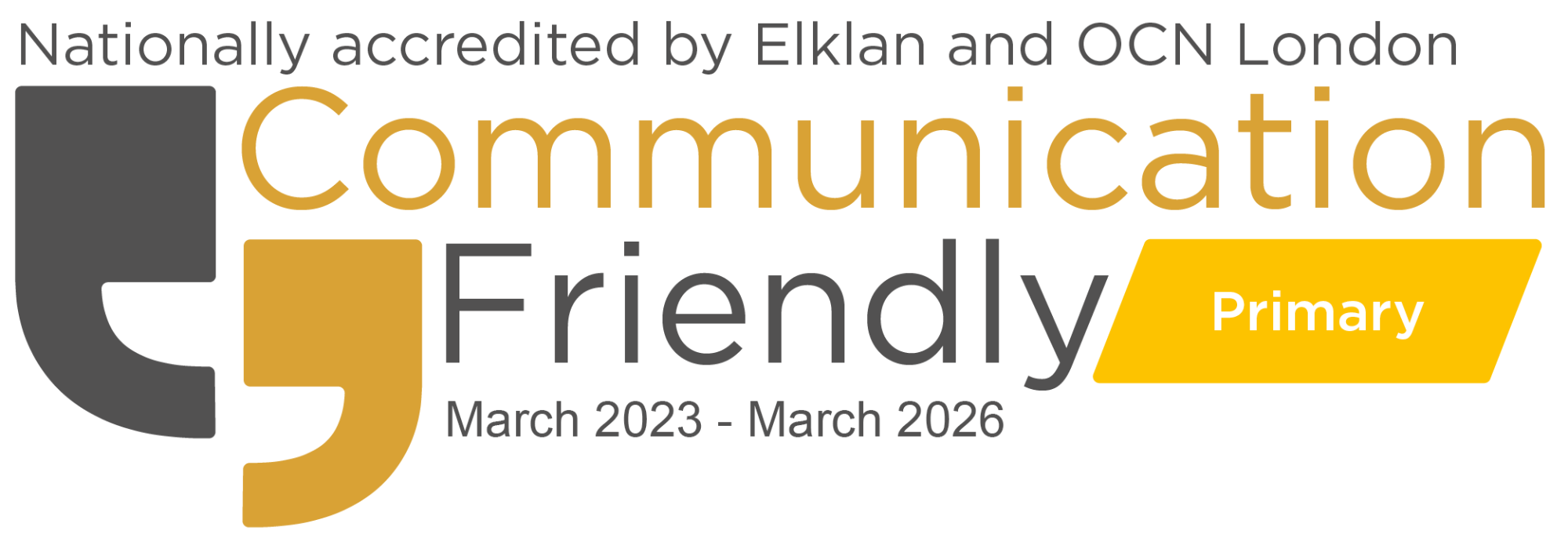Relationship and Sex Education
"In faith and love, we learn and grow."
Intent
‘Life to the Full’ is a programme that is rooted in the teaching and wisdom of the Catholic Church and has been approved by our diocese. Through the delivery of this programme at St Hugh of Lincoln Catholic Primary School, we will promote a virtuous culture within the life of the school that will provide links to Gospel-rooted assemblies and contribute to daily collective worship. It will inspire our children by teaching them about God’s call to love; about how God’s design for creation, especially the human body, reveals insight into His great plan for human relationships as a sign of heavenly unity. The lessons that are taught offer the children the chance to develop and understand their personal, social and emotional development.
Implementation
Each key stage focuses on the same three modules using a spiral approach where children build upon prior knowledge attained from their learning in the previous key stage. As children progress through the school, they will revisit and further explore the concepts of each module. They learn through a range of scriptures, stories and video clips, drawing upon their personal experiences and reflecting on their choices and actions. Whilst learning, teachers will use questioning to assess children’s understanding of what is being taught and present them with scenario’s to offer them the opportunity challenge their moral and spiritual thinking. An evaluative approach to assessment is adopted by teachers to inform them of individual progress.
Early Years Foundation
EYFS Module One: Created and Loved by God
During module one, the children will explore and understand themselves. Rooted in the teaching that we are created by God out of love and for love, children will develop an understanding of the importance of valuing themselves as the basis for personal relationships; while introducing children to the story of creation, where God created the earth, sea, stars, plants, animals and humans.
Module Two – Created to Love Others
During module two, children will explore and understand their relationship with others. They will build on the understanding that we have been created out of love and for love, this Module explores how we take this calling into our family, friendships and relationships, and teaches strategies for developing healthy relationships and keeping safe. Finally helping children to understand why the Bible is so special to Christians.
Module Three – Created to Live in Community
During module three, children will explore and understand their relationship with the wider world. Here we explore how human beings are relational by nature and are called to love others in the wider community through service, through dialogue and through working for the Common Good. Then introducing, in a very simple way, the concept of the Trinity, where God is three-in-one and each part loves the others and loves us.
Key Stage One
Module One – Created and Loved by God
During module one, children will develop an understanding of the importance of valuing themselves as the basis for personal relationships. They will be encouraged to understand that they are created by God out of love and for love and that we should celebrate similarities and differences between people, including our God-given bodies and the things they enable us to do. Children will develop an understanding and begin to articulate their own changing feelings and how other people’s feelings might differ from theirs. Children will learn how they can manage their feelings and about the consequences of their actions. Through the specifics of the human life cycle, children will learn to celebrate how they have already changed and grown.
Module Two – Created to Love Others
During module two, children will explore their relationship with others whilst teaching them strategies for developing healthy relationships and keeping safe. They will learn to identify the Special People in their lives who they love and who can trust. Children will begin to learn how to cope with various social situations and dilemmas, and the importance of saying sorry and forgiveness within relationships. Children will explore the difference between good and bad secrets and the implications that they have.
Module Three – Created to Live in Community
During module three, children will explore their relationship with the wider world and how human beings are relational by nature and are called to love others in the wider community through service, through dialogue and through working for the Common Good. Through stories, children will begin to learn that God made us to be in loving relationships with one another. They learn about the different local and global communities that they are part of, and what rights and responsibilities come with belonging to these communities.
Lower Key Stage Two
Module One – Created and Loved by God
During module one, children will explore the understanding of being an individual reinforced by the teachings that we are made in the image and likeness of God. This helps children to develop an understanding of the importance of valuing themselves as the basis for personal relationships. Through story and discussion, children will learn that they are designed for a purpose and how they should live in light of this. Children will learn to celebrate similarities and differences, and to appreciate and look after their bodies as gifts from God. They will learn about specific physical and emotional changes during puberty, and that growing from boys and girls to men and women is part of God’s loving plan for creation.
Module Two – Created to Love Others
During module two, children will explore their relationship with others. Building on the understanding that we have been created out of love and for love, they will explore how we take this calling into our family, friendships and relationships, and learn strategies for developing healthy relationships and keeping themselves safe. It will be demonstrated to the children that God loves us, and nothing we can do will stop Him from loving us. Children will also learn about different types of sin, and the importance of forgiveness in relationships. They will develop a more complex appreciation of different family structures, develop healthy relationships with family and friends and learn some strategies to use when relationships become difficult. Children will be taught how to recognise discrimination and bullying, both physical and emotional and they will learn strategies to develop resilience and resist pressure.
Module Three – Created to Live in Community
During module three, children will explore their relationship with the wider world and how human beings are relational by nature and are called to love others in the wider community through service, through dialogue and through working for the Common Good. In greater detail, children will hear and discuss an allegorical story for the three part community of love, the Trinity. Children will learn that as they are made in God’s image, they too are created to live in community. Through some of the principles of Catholic Social Teaching from Together for the Common Good, children will learn which will help them to live in communities in the way God intends.
Upper Key Stage Two
Module One – Created and Loved by God
During module one, children will revisit and further explore the understanding of being an individual reinforced by the teachings that we are made in the image and likeness of God. This helps children to develop an understanding of the importance of valuing themselves as the basis for personal relationships. Over five story sessions, children will consider experiences of change, growth and development, and the trust that they can have in the person of Jesus through times of trial and tribulations. Children will learn to celebrate differences between people as enriching to a community and know that their self-confidence should arise from being loved by God. They will learn about the physical changes that boys and girls go through during puberty and how they should respect and take care of their bodies as gifts from God. Children learn about pressures that they may experience from themselves, others and the media. They will develop ideas on how to build resilience through thankfulness, use simplified Cognitive Behavioural Techniques to manage their thoughts, feelings and actions and cope with new or difficult feelings such as romance and rage. Children will learn about God’s design for creating new life through a more nuanced understanding of menstruation, fertility, conception, foetal development in the womb and childbirth.
Module Two – Created to Love Others
During module two, children will further explore their relationships with others. Building on the understanding that they have been created out of love and for love, children will learn how we take this calling into our family, friendships and relationships, and strategies for developing healthy relationships and keeping safe. We aim to equip children with strategies for more complex experiences of relationships and conflict including helping them to identify and understand how to respond to spoken and unspoken pressure, the concept of consent and some practical demonstrations of this, and how our thoughts and feelings have an impact on how we act. Children will become better equipped to make safe and sensible decisions about what online content they should/shouldn’t share, cyberbullying and how to report and get help if they encounter inappropriate messages or material. Children will know how to spot each type of abuse: sexual, physical, emotional and neglect and who they can go to for help.
Module Three – Created to Live in Community
During module three, children revisit and further explore the individual’s relationship with the wider world. Here we explore how human beings are relational by nature and are called to love others in the wider community through service, through dialogue and through working for the Common Good. In greater detail, children will look at the world of Trinity House where they will hear and discuss an allegorical story for the three part community of love, the Trinity with the endpoint of discussing the Trinity as it might be communicated in a church setting. Children will learn that the Trinity demonstrates the perfect loving community, and that we are called to emulate this self-giving and self-sacrificing love in our communities.
IMPACT
At St Hugh of Lincoln Catholic Primary School, we strive to mould our children into kind, caring and thoughtful individuals who recognise difference and embrace individuality. We believe that children are made in the image and likeness of God and through our spiritual and moral teachings of our faith we endeavour to our children into valuable members of the community and society. We believe that our children will be inspired about God’s call to love; about how God’s design for creation, especially the human body, reveals insight into His great plan for human relationships as a sign of heavenly unity.




